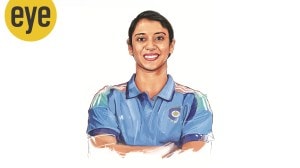Those who still can, teach
The Chadha report shouldn’t replace a real debate on higher education

Sometime in September, this city of protests hosted yet another protest march, which registered not even a blip on the news radar. The march, from the Ferozeshah Kotla grounds to the UGC office on Bahadur Shah Zafar Marg, was taken out by college and university lecturers demanding the tabling of the Chadha committee on pay reforms — which had been constituted a whole year earlier, and had demanded “at least three more months”. A few dharnas and one protest march later, we now learn that it has submitted its recommendations to the UGC; a report being received with emotions ranging from cautious optimism and outright suspicion.
What was puzzling was the baffling non-reportage of the march in national newspapers and news channels, which have hosted shrill debates on the Pay Commission earlier this year, and more recently on the revision of armed forces salaries. On many measures this march was unusual. For one it was extremely well-attended — the number by casual estimates was in thousands, not the usual hundreds. More strikingly, it was people like you and me: highly educated qualified professionals who read newspapers and editorials, watch national television news obsessively, and pride themselves on having an informed opinion on current issues. In fact, the march arguably contained a higher concentration of higher degrees per square kilometre than any other political protest witnessed in this country. So, one blazing September morning, there was a sea of PhDs on the streets of central Delhi raising crucial questions about higher education in this country. For novelty value alone, this should have caught our attention.
But, as I said, not even the faintest blip. Well, perhaps the very faintest; there was a smattering of bored-looking photographers and journalists present at the scene. When the procession briefly blocked traffic while crossing Bahadur Shah Zafar Marg, the photographers stirred and started running backwards and snapping away in their mock-heroic style. Great, thought the lecturers, something on the front pages tomorrow. Perhaps even debate on the Big Questions over the following days and weeks: how do we want our university system to function? Make them vibrant centres of learning? Value quality higher education and educators? Produce students who choose meaningful careers in teaching and research? Resuscitate teaching in the pure sciences and humanities, without which no society can call itself civilised?
“College Teachers Miss Classes” was the title of a report on the third page of one English-language daily. A couple of Hindi newspapers were slightly more sympathetic, but only slightly. As for television, there wasn’t a single report that day that I am aware of. An attitude of benign neglect, this, revealed in assumptions about teaching being a ‘noble profession’ (Read: teachers do not need incomes comparable to other professionals). Thus the march, the entire debate, sank into obscurity, part of the long-running, ritualised interaction between the state and its employees, a replay of the scripted drama that lecturers and professors enact each time a Pay Commission is announced. Last time, teachers were forced to go on a week-long strike, for dubious gain at best. This time, teachers have reason to believe that carefully wrapped between catchy-sounding phrases like “70 per cent increase in salary”, may be provisions that have the overall effect of increasing individual teaching burden and institutional surveillance (including student evaluations of teachers, an otherwise bright idea that remains wide open for misuse by college authorities under present circumstances).
In the absence of a sensible plan to revive the existing university system (of which one part will be decent pay and support for faculty research and development), a damning downward spiral has already been set into motion: if it is allowed to complete its logic, we face the prospect of a society with hundreds of thousands of semi-literate “English-speaking” graduates who provide the call center industry with its high-turnover human resources, but not a single PhD worth the name. And private higher education and new “world-class” universities like the proposed South Asian University (whose “CEO” is the eponymous Dr. Chadha of the Chadha Committee himself), should not be considered miracle cures; the record of private or semi-private higher education in India has so far been abysmal in many cases, and practically non-existent in the social sciences and humanities. More importantly, there is much that is ‘world-class’ in the current system already; there are thousands of committed, highly-qualified lecturers and professors in Indian colleges and universities who continue to inspire and educate their students in the face of dwindling institutional support, infrastructure, relative income and wider societal recognition. Teachers who already spend more than double the amount of time lecturing and in contact hours than do their colleagues in the first world. Teachers whose students sail through higher degrees abroad on the strength of their degrees from here; students who will in all likelihood earn a higher first salary than many of their old college teachers. You and I are products of this education system: what do you think your teachers deserve? A real debate at least?
The writer is a political scientist at Lady Shri Ram College, Delhi
expressexpressindia.com



- 01
- 02
- 03
- 04
- 05




























